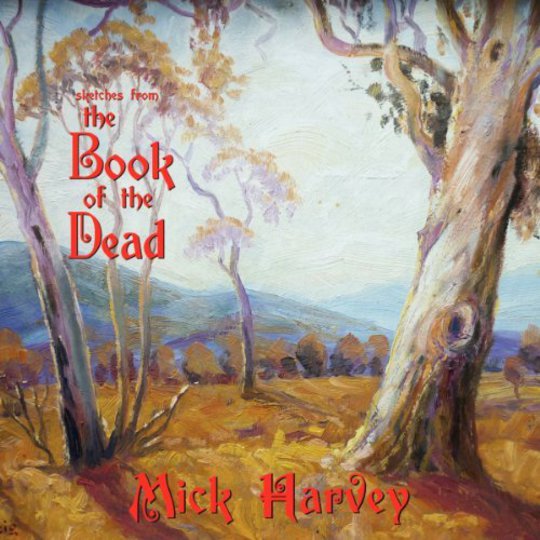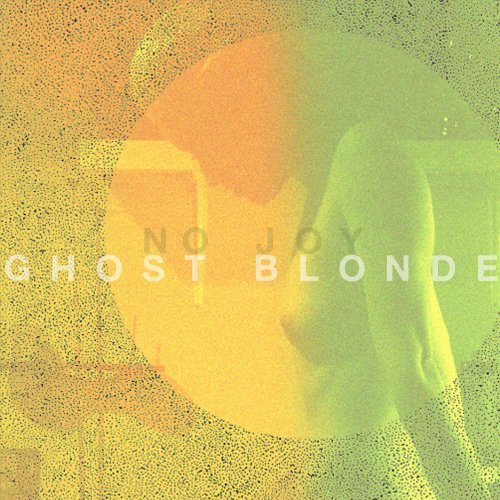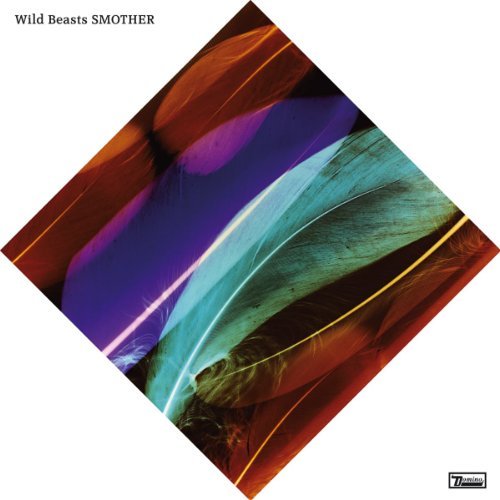It’s been two years since Mick Harvey’s complexly catalysed 2009 split from the Bad Seeds, and aside from contributing to PJ Harvey’s Let England Shake, it’s been largely quiet from the 52-year-old Australian. But Sketches from the Book of the Dead is a project that’s been slowly maturing since long before Harvey quit his day job - not that I’m about to knock him for the delay when Harvey is, by his own admission, 'not a songwriter by vocation', and this is his first fully self-penned record. It was interesting, whilst wading through the relatively humble amount of web-space dedicated to Harvey’s lengthy career, to find him drawing parallels between Sketches from the Book of the Dead and Let England Shake. The two are, after all, both ‘concept albums’ – Let England Shake a record on the subject of the First World War, while Sketches... is an 11 song requiem for friends, family and colleagues.
Clearly then, the album deals with a portion of Harvey’s life that’s predominantly characterized by death, and is conceptually unified by its dealing with mortality, inspired by the recently departed characters from Harvey’s life (including Rowland S. Howard of Harvey’s former post-punk troupe The Birthday Party). I say ‘characters’ not particularly because of Harvey’s portrayal of different personalities, but because of his taste for melodrama. The album develops like a piece of dimly-lit theatre, each signaling a new scene, a new character, and a new story.
Opening pair ‘October Boy’ and ‘The Ballad of Jay Givens’ sit heavy with a sort of mistreated snarl, but they’re soon replaced by the atmospheric bleeding of ‘Two Paintings’, a transition that seems to repeat itself between the couplet of ‘The Bells Never Rang’ and ‘That’s All, Paul’, and the pastoral reflection of ‘How Should I Leave You?’. But while musically, the moodily evocative guitar, piano and double bass led songs seem to split into the two categories of gnarling minor-key tension and a floating contemplation, they’re definitely distinct in both lyric and narrative, each a separate character study in its own right.
The melodramatic overtones are further propelled by Harvey’s voice – his bottomless baritone often balancing on the boundary between sung and spoken, even overdubbed with a graveled whisper on the brief ‘To Each His Own’. At times, this theatre makes me want to believe that Harvey’s retelling an old myth, rather than recounting more recent experiences. Distorted fairytale gestures such as “every door is barred with gold/and opens but to a golden key” on ‘A Place Called Passion’ and “wish I may, wish I might, have the wish I wish tonight/which little finger did it bite, this little finger on the right” on ‘Rhymeless’ hardly help to diminish the mystique of his dark storytelling.
If you can get on board with Harvey’s uniquely theatrical songwriting style, then there’s a prismatic world of life, love, indulgence, abandonment, betrayal, and ultimately, death in this record. Sadly, for those of you happier to be six months clear of pantomime season, it’s maybe a struggle to appreciate these songs as much more than histrionic fiction.
-
7Sam Cleeve's Score






















